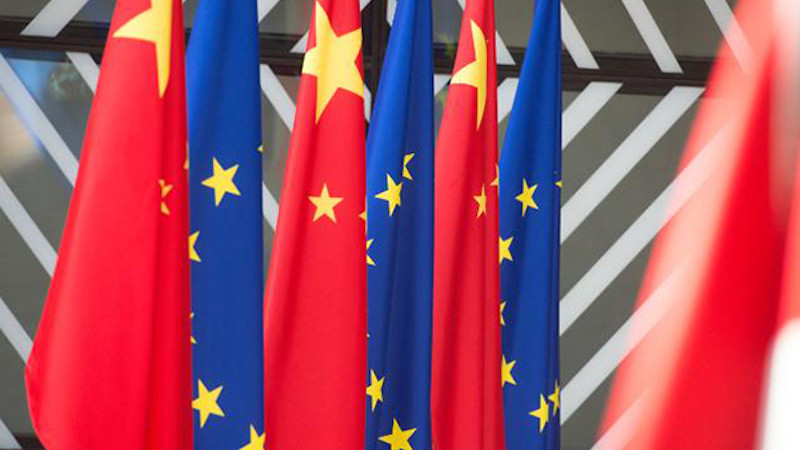By Thomas Moller-Nielsen
(EurActiv) — EU-China relations are at risk of severely deteriorating if the current trade tariffs “tit-for-tat” develops into a hardline approach from the two blocs, European and Chinese panellists said at a Brussels event on Tuesday (18 June).
European Policy Centre (EPC) chief executive and chief economist Fabian Zuleeg said at a EPC-hosted event that, in addition to a lack of “trust”, Brussels and Beijing share widely different “perceptions” on the legitimacy of the provisional tariffs announced last week by the European Commission on China-manufactured electric vehicles (EV).
While European leaders have targeted what they see as a competition distortion created in the global EV market by Chinese subsidies, Chinese officials have denounced the new measures as protectionist and possibly in breach of World Trade Organisation (WTO) rules (an accusation the Commission countered on Friday).
“I don’t think anyone wants a trade war, it is an extremely costly exercise for both sides,” Zuleeg said, “But the risk of escalation is there.”
“We are going to see some tit-for-tat as we go along. The question is whether that’s going to be limited or [it’s] going to be full-out. We will see in the next [few] weeks,” he added.
Zuleeg’s comments came the day after China announced that it would respond to the Commission’s EV tariff decision by launching its own “anti-dumping” investigation into European pork exports.
The move would primarily hit Spain as the EU’s top pork exporter to China, followed by the Netherlands, France and Denmark – which prompted Spanish officials to call for balanced solutions and negotiations.
EU’s ‘systemic rival’ definition of China highly problematic
Zuleeg’s remarks about the decaying state of EU-China relations were echoed by Ling Jin, the director at the department for European studies at the China Institute of International Studies.
Jin emphasised that the EU has officially described Beijing as “a partner for cooperation, an economic competitor, and systemic rival” – with the last element becoming predominant. This could exacerbate already tense relations, she argued.
“[‘Systemic rival’ is] a complicated word. It confused us a lot,” Jin said.
“What’s the exact meaning of that? If you follow the debates, especially by the politicians here, I think the kind of definition [of systemic rival] has been expanded to more and more areas that actually will fundamentally shake the root of China-EU relations,” she said.
Huiyao Wang, the founder and President at the Center for China and Globalisation, accused Europe of “double standards” – arguing the bloc simultaneously commits to combating climate change whilst introducing tariffs on Chinese EVs.
Wang also urged European policymakers to distance themselves from the US’s more hawkish views on China.
“I don’t think you should follow the US so closely… We probably should have more independent thinking,” he said.
Wang’s remark contrasted with the views expressed to Euractiv by a former top US trade official, who said the levels of duties unveiled by the EU last week would stop short of providing any meaningful protection to the European industry.

